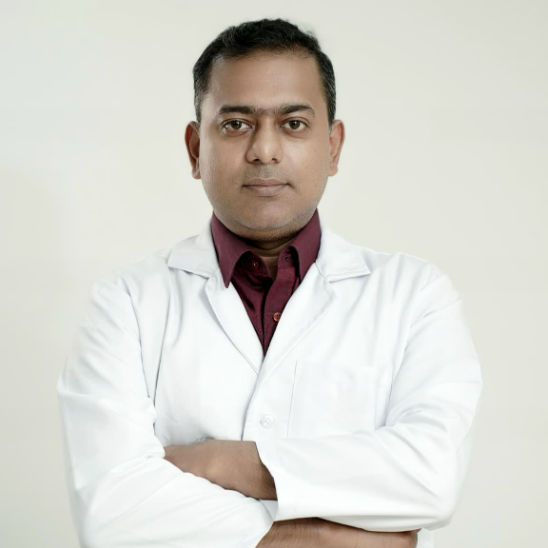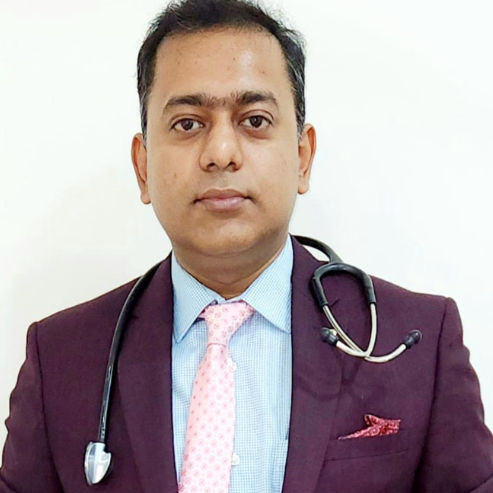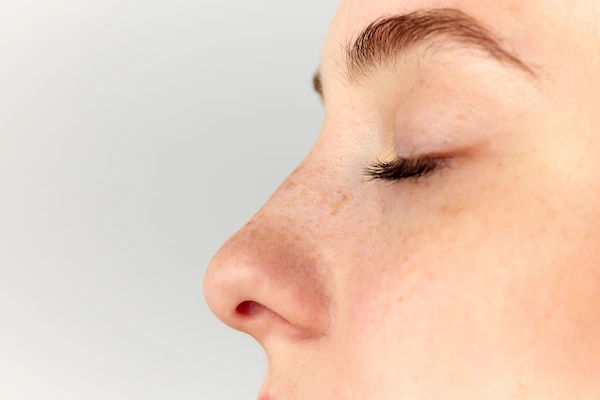Adenoids Symptoms, Causes, and Treatment Information
Know about the adenoid, symptoms, causes, treatment, types, diagnosis and more.


Introduction
Adenoids are small patches of tissue located at the back of the nasal passage, playing an important role in fighting infections, especially in children. While they help protect the body from germs, sometimes they can become enlarged or infected, leading to various health issues. If you or your child is experiencing frequent ear infections, breathing difficulties, or persistent colds, adenoid problems might be the cause.
This article aims to provide a clear understanding of adenoids, their symptoms, causes, and treatment options in simple terms.
What Are Adenoids?
Adenoids are part of the immune system and are made up of lymph tissue, similar to tonsils. They help trap harmful bacteria and viruses that enter through the nose and mouth. Unlike tonsils, which can be seen at the back of the throat, adenoids are hidden behind the nose and above the roof of the mouth.
Adenoids are most active in children between the ages of 3 and 5. As children grow, adenoids usually shrink and may disappear by the teenage years. However, in some cases, they can become enlarged or infected, causing health problems.
Consult an Oncologist for Personalised Advice
Common Symptoms of Adenoid Problems
When adenoids become swollen or infected, they can cause various symptoms, including:
1. Breathing Difficulties
- Mouth Breathing: Since enlarged adenoids block the nasal passage, children often breathe through their mouths.
- Snoring or Noisy Breathing: Swollen adenoids can lead to loud breathing or snoring during sleep.
- Sleep Apnea: In severe cases, enlarged adenoids can cause pauses in breathing during sleep, leading to poor sleep quality.
2. Frequent Infections
- Recurrent Ear Infections: Enlarged adenoids can block the Eustachian tubes (connecting the middle ear to the throat), leading to ear infections and hearing problems.
- Sinus Infections: Blocked nasal passages increase the risk of sinus infections.
- Persistent Cold & Sore Throat: Chronic nasal congestion and throat irritation are common.
3. Other Symptoms
- Nasal Speech: A blocked nose can make a child’s voice sound muffled or nasal.
- Bad Breath: Due to chronic mouth breathing and infections.
- Difficulty Swallowing: Enlarged adenoids may make swallowing uncomfortable.
If your child has these symptoms frequently, it’s best to consult a doctor.
What Causes Enlarged or Infected Adenoids?
Several factors can lead to adenoid problems:
1. Frequent Infections – Repeated colds, sinus infections, or throat infections can cause adenoids to swell.
2. Allergies – Chronic allergies (like pollen or dust allergies) can irritate and enlarge adenoids.
3. Genetics – Some children are more prone to enlarged adenoids due to family history.
4. Secondhand Smoke – Exposure to smoke can increase inflammation in adenoids.
How Are Adenoid Problems Diagnosed?
If a doctor suspects adenoid issues, they may perform:
- Physical Examination: Using a small mirror or a flexible camera (endoscope) to check the adenoids.
- X-ray or CT Scan: To see the size and position of the adenoids.
- Sleep Study: If sleep apnea is suspected, a sleep test may be recommended.
Treatment Options for Adenoid Problems
1. Medications
- Antibiotics – If the adenoids are infected, antibiotics may help.
- Nasal Sprays – Steroid sprays can reduce swelling in mild cases.
- Antihistamines – If allergies are the cause, allergy medications may help.
2. Surgical Removal (Adenoidectomy)
- If medications don’t help or if the adenoids cause severe breathing or ear problems, a doctor may recommend adenoidectomy (surgical removal of adenoids).
- Procedure: Done under general anaesthesia, the surgery takes about 30 minutes.
- Recovery: Most children recover within a week with mild discomfort.
3. Home Care & Prevention
- Humidifiers: Moist air can help ease breathing difficulties.
- Hydration: Drinking warm fluids soothes the throat.
- Avoiding Irritants: Keep children away from smoke and allergens.
When to See a Doctor?
Consult a doctor if:
- Your child has persistent breathing problems or snoring.
- Ear infections keep coming back.
- Sleep is disturbed due to breathing pauses.
Final Thoughts
Adenoid problems are common in children but can be managed with proper care. While mild cases may improve with medications, severe cases might need surgery. Early diagnosis and treatment can prevent complications like hearing loss or sleep disorders.
Consult an Oncologist for Personalised Advice
Consult an Oncologist for Personalised Advice

Dr. Gopal Kumar
Head, Neck and Thyroid Cancer Surgeon
15 Years • MBBS, MS , FARHNS ( Seoul, South Korea ), FGOLF ( MSKCC, New York )
Delhi
Apollo Hospitals Indraprastha, Delhi
(25+ Patients)

Dr. Rupam Manna
Radiation Specialist Oncologist
7 Years • MBBS MD(RADIO THERAPY), CCEBDM
Barasat
Diab-Eat-Ease, Barasat

Dr. Sanchayan Mandal
Medical Oncologist
17 Years • MBBS, DNB Raditherapy, DrNB Medical Oncology
East Midnapore
VIVEKANANDA SEBA SADAN, East Midnapore

Dr. Sanchayan Mandal
Medical Oncologist
17 Years • MBBS, DrNB( MEDICAL ONCOLOGY), DNB (RADIOTHERAPY),ECMO. PDCR. ASCO
Kolkata
MCR SUPER SPECIALITY POLY CLINIC & PATHOLOGY, Kolkata

Dr.sanchayan Mandal
Medical Oncologist
17 Years • MBBS, DrNB( MEDICAL ONCOLOGY), DNB (RADIOTHERAPY),ECMO. PDCR. ASCO
Kolkata
Dr. Sanchayan Mandal Oncology Clinic, Kolkata
Consult an Oncologist for Personalised Advice

Dr. Gopal Kumar
Head, Neck and Thyroid Cancer Surgeon
15 Years • MBBS, MS , FARHNS ( Seoul, South Korea ), FGOLF ( MSKCC, New York )
Delhi
Apollo Hospitals Indraprastha, Delhi
(25+ Patients)

Dr. Rupam Manna
Radiation Specialist Oncologist
7 Years • MBBS MD(RADIO THERAPY), CCEBDM
Barasat
Diab-Eat-Ease, Barasat

Dr. Sanchayan Mandal
Medical Oncologist
17 Years • MBBS, DNB Raditherapy, DrNB Medical Oncology
East Midnapore
VIVEKANANDA SEBA SADAN, East Midnapore

Dr. Sanchayan Mandal
Medical Oncologist
17 Years • MBBS, DrNB( MEDICAL ONCOLOGY), DNB (RADIOTHERAPY),ECMO. PDCR. ASCO
Kolkata
MCR SUPER SPECIALITY POLY CLINIC & PATHOLOGY, Kolkata

Dr.sanchayan Mandal
Medical Oncologist
17 Years • MBBS, DrNB( MEDICAL ONCOLOGY), DNB (RADIOTHERAPY),ECMO. PDCR. ASCO
Kolkata
Dr. Sanchayan Mandal Oncology Clinic, Kolkata




